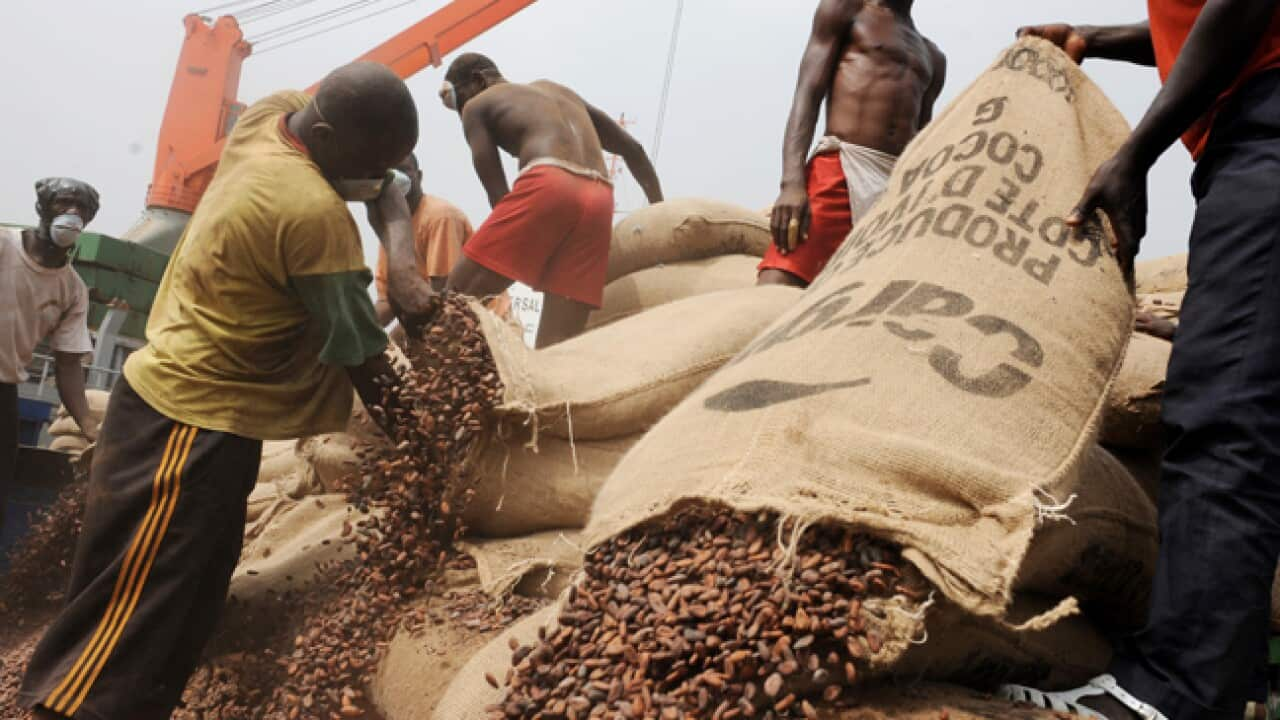At least 30 people were killed when a market was shelled in a stronghold of recognised president Alassane Ouattara, sending fears soaring for civilians caught up in a bloody election dispute.
The attack, which several witnesses attributed to troops loyal to strongman Laurent Gbagbo, was one of the bloodiest since a disputed presidential election in November plunged the world's top cocoa producer into crisis.
It came just hours after the UN mission in Ivory Coast (UNOCI) said the death toll in post-election violence as the recalcitrant outgoing president refuses to cede power had risen to 410.
"I saw the body of a woman and 11 men and young people in front of a square. At the moment we are all scattered around the neighbourhood. I fled my home with my children," one resident of the Abobo suburb said.
"Shells fell near the market; we saw the 12 dead," said another resident. Another two confirmed seeing the bodies, while several witnesses said the toll could be much higher.
Abobo, the most populous suburb of the Ivorian economic capital that counts some 1.5 million residents, is largely controlled by pro-Ouattara fighters.
The Gbagbo camp claims the zone is "riddled with rebels".
Violence in the capital has rocketed since a decision last week by the African Union to endorse Ouattara's presidency, rejected outright by Gbagbo.
Fighters backing Ouattara have attempted to move south from Abobo, infiltrating neighbouring suburbs and meeting fierce resistance from pro-Gbagbo troops.
On Wednesday night shooting dominated by heavy weapons fire was heard in the Adjame suburb which houses two large military camps, an obstacle on the road to downtown Plateau, the administrative sector and home to the presidential palace.
Gunfire also rang out in the chic residential suburb of Cocody, home to pro-Gbagbo state television station RTI and the residence of the outgoing president.
Clashes have also been reported in Port-Bouet 2, a pro-Ouattara enclave in the Youpougon suburb, which is predominantly pro-Gbagbo.
Shooting was heard throughout the night in the area where an imam was shot dead in his mosque on Wednesday.
Fear has grown for the safety of citizens caught up in the violence.
The EU's emergency aid commissioner on Thursday urged the world not to overlook the humanitarian crisis in Ivory Coast which she says "actually exceeds" that in Libya and had put the nation "on the brink of civil war".
"(This) crisis deserves equal attention because the numbers of people affected actually exceeds that in Libya," Kristalina Georgieva told a news conference as she announced 25 million euros ($A35.63 million) of new money to help those fleeing the violence.
She cited the latest UN estimates of almost 400,000 people on the move - 200,000 displaced from Abidjan alone, and 80,000 having
already crossed into Liberia and Guinea.
UNOCI spokesman Hamadoun Toure said 18 people had died in the past week, including four women, "bringing to 410 the number of people killed in the country since mid-December 2010".
"This is the figure we have been able to verify and document," he told AFP.
He emphasised the plight of children who faced being "attacked physically, killed, maimed for life and often forced to leave their families and abandon school to escape the fighting."
"To this must be added the enormous psychological trauma of these children whose parents are sometimes killed before their eyes," he said, addressing journalists in Abidjan at the weekly press briefing of the 10,000-strong UN mission.
On Tuesday, Ouattara urged his rival to seize a last chance to peacefully cede power.
"It is time that he accepts the will of the Ivorian people and the African Union," Ouattara said.
State media have heralded an expected address to the nation by Gbagbo himself, without saying when it will take place.
On Tuesday, Gbagbo loyalists beat back pro-Ouattara forces in the strategic town of Duekoue in a battle for control of western Ivory Coast.
Fighters of the former rebel New Forces allied with Ouattara have held the north of this former French colony since a 2002 civil war.
Share

